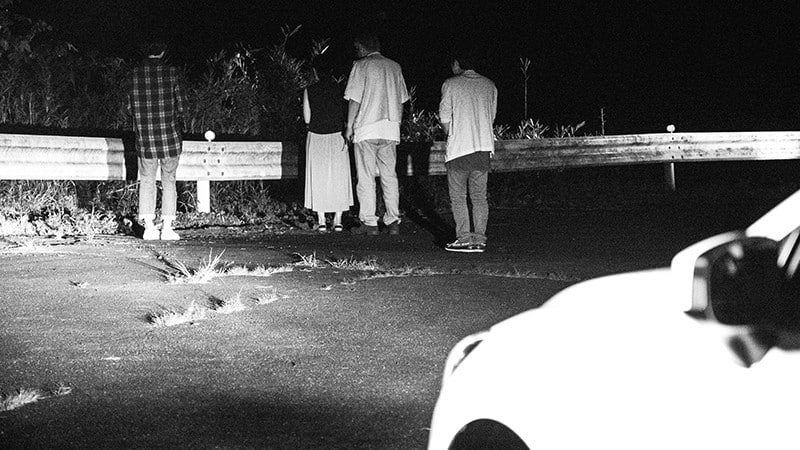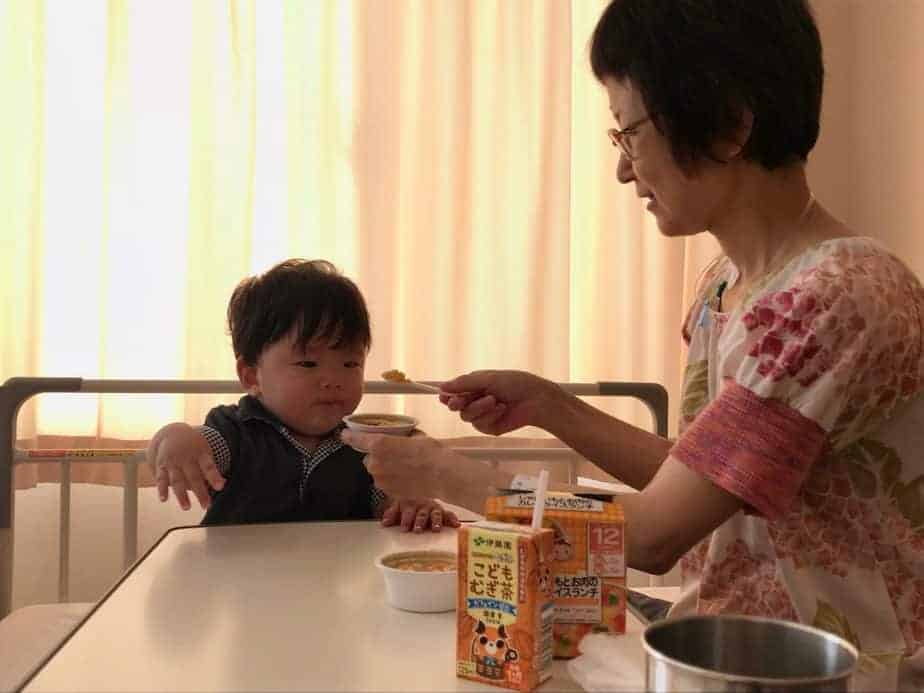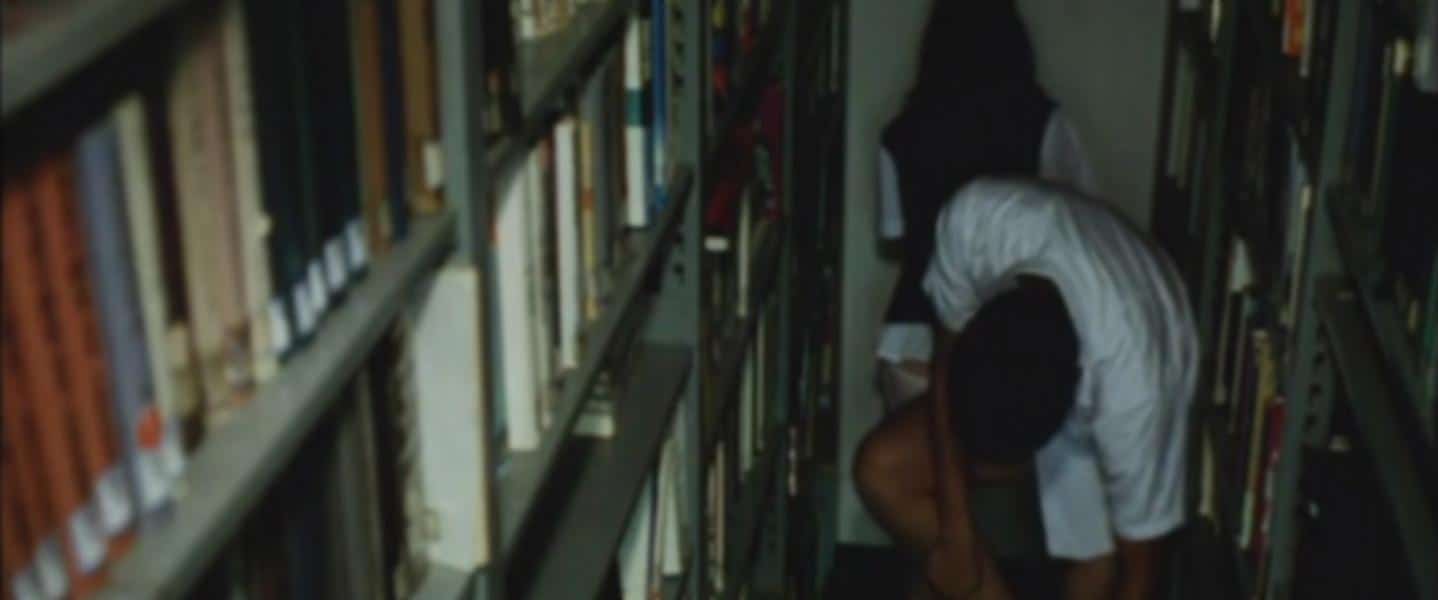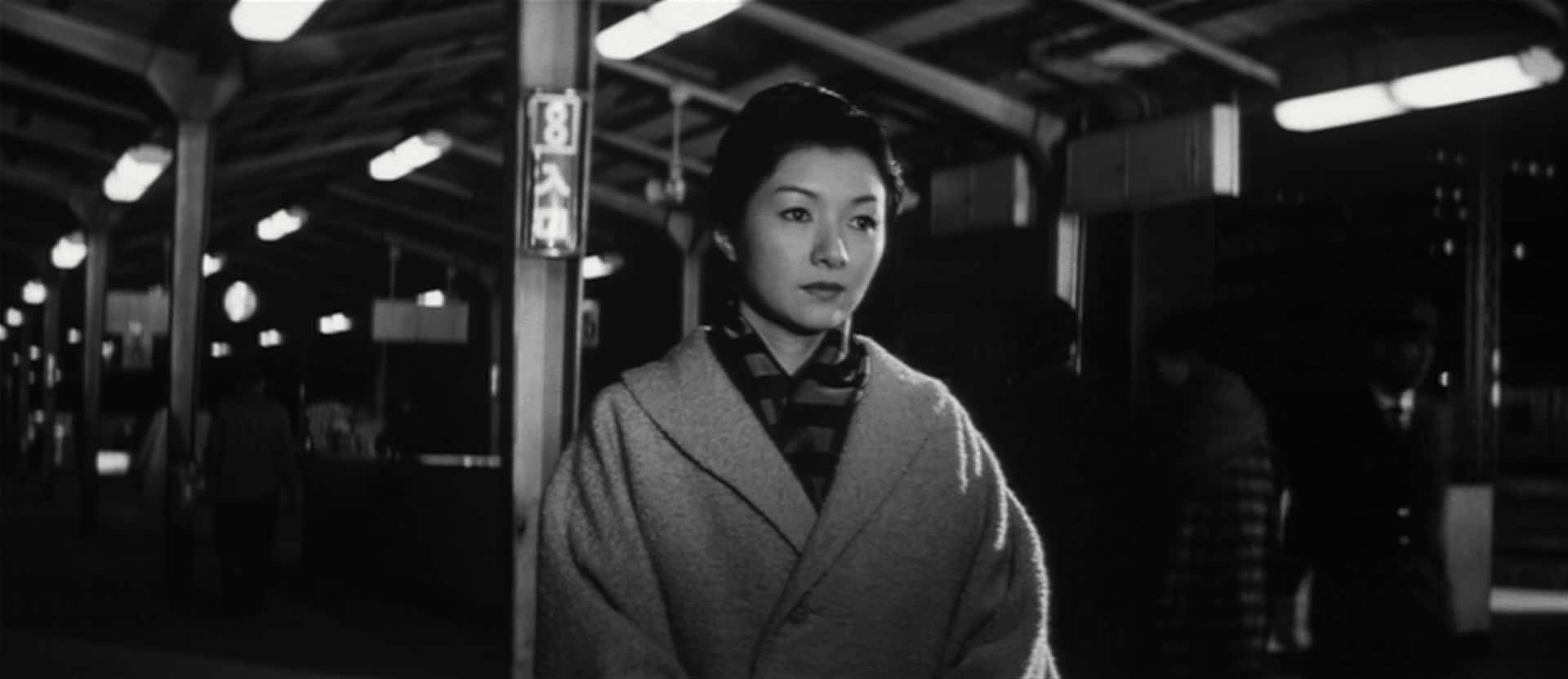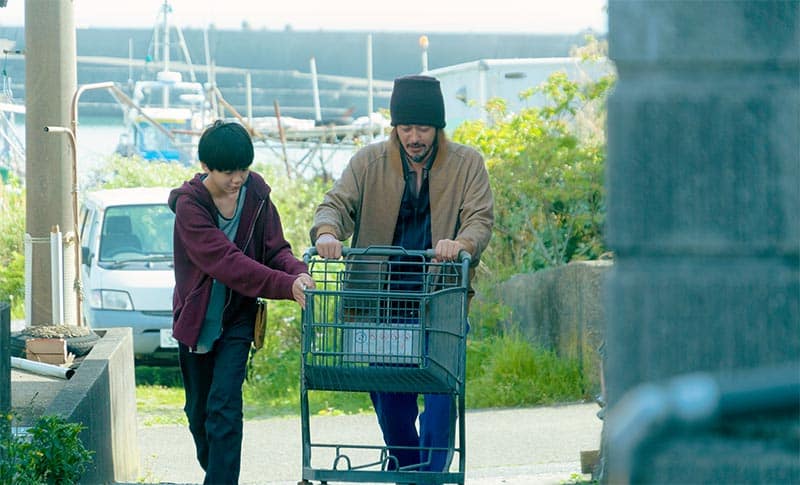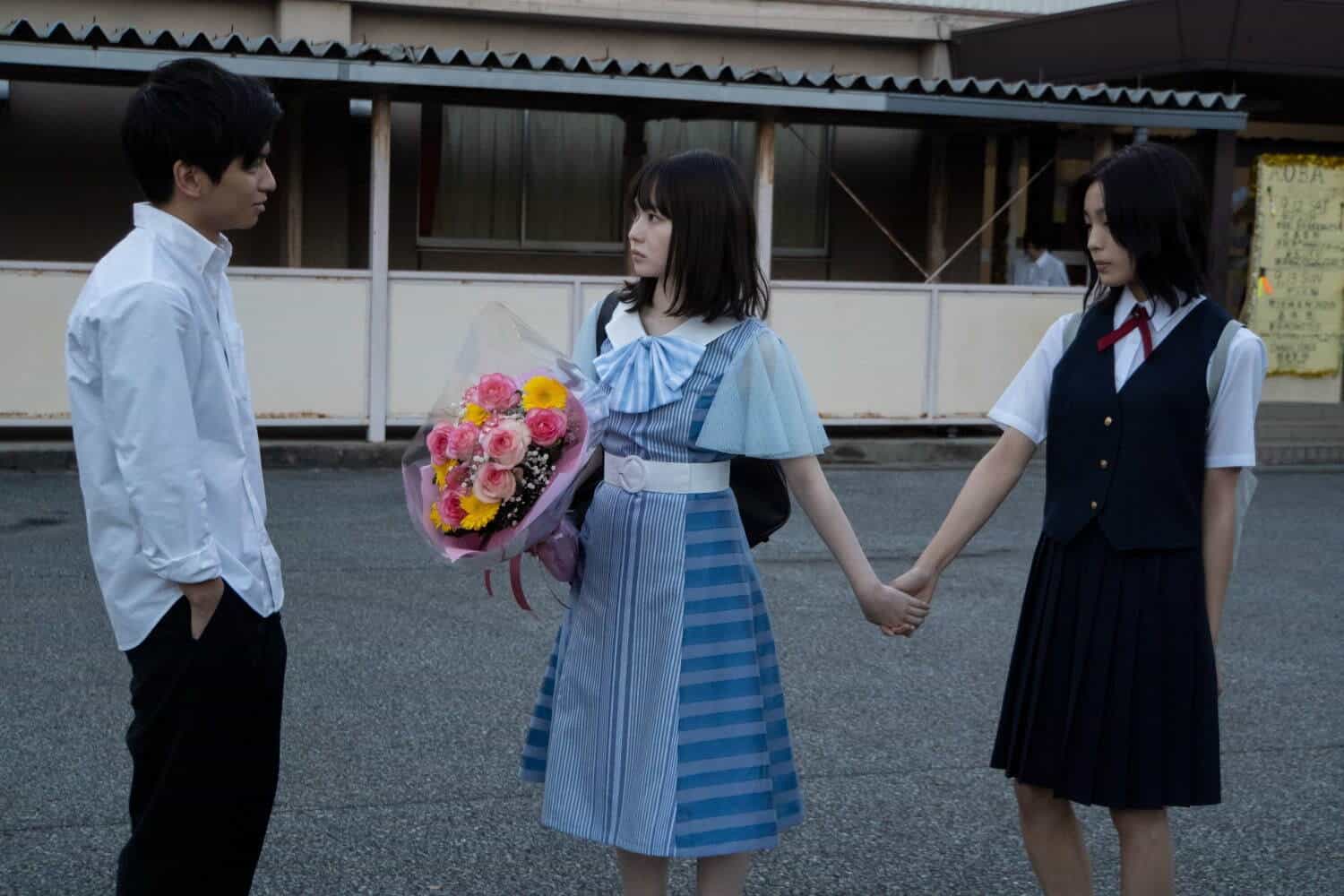“I'll take the university exam.”
“Where?”
“Anywhere but here.”
Even though the natural catastrophes are no longer present in the media, the scars they have left on the Japanese landscape still remain. Apart from the environmental repercussions, the most significant change has occurred within the country's society, especially between rural and urban communities. With many communities still steeped in tradition, change has become an inevitable notion on many levels, some of which already were set in motion in the era of globalization.
Dream of Illumination is screening at Japan Cuts 2018

While there are many studies on the subject of “social precariousness”, the concept has lately gotten more attention. In her book called “Precarious Japan” cultural anthropologist Anne Allison refers to this issue, stating how ever since the burst of the economic bubble the face of Japan's populace and its communities has changed drastically. The economic regression combined with the natural catastrophes has resulted in growing feelings of hopelessness, insecurity and even alienation. Interestingly, these developments also left many people craving to regain these aspects of their lives with some moving away from large cities like Tokyo to smaller communities.
As the son of an environmental scholar and having worked for a land shark and for a trading company, Japanese director Thunder Sawada perhaps had a specific interest in these developments for his first feature. After having directed several short features and working in the field of contemporary art, “Dream of Illumination” may highlight the issues of precariousness and change within Japanese culture. The project aims to express the director's desire to “persuasively present the rights and perspectives of people who are cowards, traitors and hateful towards others”. “Dream of Illumination” aims to show the landscape of Japanese rural life and its changing landscape.
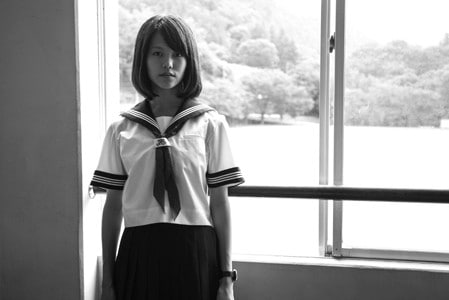
Ueda (Yuya Takagawa) is a realtor who has been working on the rural town Rokujo buying and selling land, mostly to foreigners, which has gained him a negative reputation among the townspeople. His daughter Nana (Sara Shida) is in the senior year of her high-school, frustrated by the constant bullying she receives due to her father's work. Like most of her classmates, she is contemplating what her next step in life should be.
Meanwhile, Yuko (Elen) has come back to the house of her father, who has passed away. With the help of Yuichiro (Hikuhiko Sugiyama) she plans on renovating the house and meeting old friends of her father's. Meeting Ueda, who has been offering to buy her property, increases the animosity between her family and the realtor. Additionally, as Nana makes her final decision about her future, Ueda must face the facts of his life, his job and his personal link to the townspeople.
Perhaps the most significant feature of “Dream of Illumination” is the dried-out look Mizuki Nishida's cinematography adds to the story. While the use of black-and-white would create a nostalgic feeling to the images, a sense of memory, in the case of Sawada's film, any sense of remembering, or time in general, seems to be fading. Like the dim landscape, the almost faint, or weakened characters blend right into the canvas of the film, a mixture of nature and urban structures, all of which unite as one uniformly grey-ish patina.
At the same time, Sawada's characters seem to have been struck by grief, trauma or the severity of a transition which has not yet finished (or was never completed). For example, Ueda's status as the “scorn” of the townspeople's hatred and distrust has resulted in him accepting the fate he has been dealt. As if he was sleepwalking, he spends his days, like most of the characters we witness, in a state of dislocation and disconnection. The most tragic aspect is that even the character who should be closest to him, is miles away. Nishida's images resonate this loneliness when characters either blend in with the environment or become lost.
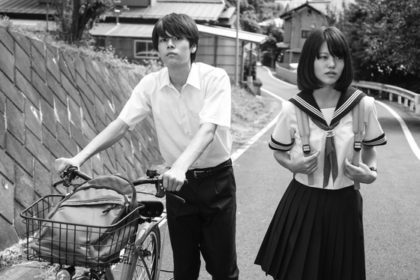
Perhaps the most telling example of this “pain of transition” is the dialogue between Nana and one of her male classmates, Kosuke (Riku Hagiwara). Although she seems to be well-integrated at her school, Nana reflects the same kind of emotional dislocation as her father, one in which she feels safe to observe rather than to participate. Engaging with others is always a risky disruption of this comfort zone, considering she is seemingly at a loss when it comes to talking to Kosuke. Similarly, Ueda's reputation as the exploiter, a constant “mark of Cain”, has forced him into a state he, as mentioned before, seems quite comfortable with.
“Dream of Illumination” is a story about grief, the pain of transition and (emotional) dislocation. Supported by Mizuki Nishida's great use of black-and-white cinematography and combined with a fittingly moody score by Kenji Kariu, Thunder Sawada's film draws an image of the emotional landscape of his characters, one which is reflected in their dull, grey surroundings. Change is much needed in these areas, for these characters, for the times and the land have taken their toll on these people, have left scars on their lives. Perhaps one just needs to have the courage to start healing.
Sources:
1) http://www.skipcity-dcf.jp/2017/en/films/films04.html, last accessed on: 07/15/2018
2) https://www.japansociety.org/event/dream-of-illumination, last accessed on: 07/15/2018
3) https://www.miff.org/film/dream-of-illumination/, last accessed on: 07/15/2018
4) Iizuka, Megumi (2017) The slow life in rural Japan is converting more young people
https://www.japantimes.co.jp/news/2017/01/03/national/social-issues/slow-life-rural-japan-converting-young-people/#.W0tDo9IzY2w, last accessed on: 07/15/2018
5) Ho, Michelle H.S. (2016) An Affective Reading of Precarious Japan
http://www.japanesestudies.org.uk/ejcjs/vol16/iss2/ho.html, last accessed on: 07/15/2018
6) Allison, Anne (2013) Precarious Japan. Durham: Duke University Press


